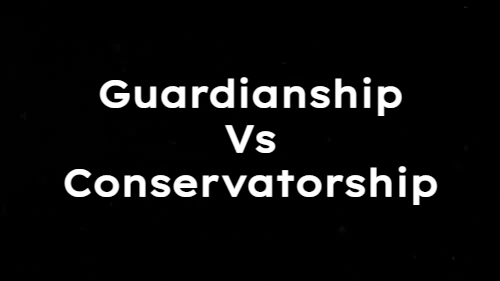The recent news about the conservatorship of Britney Spears has brought the topic of conservatorship to the minds of many Americans. A common question is: What’s the difference between guardianship and conservatorship?
Difference Between Guardianship And Conservatorship
In general, both guardianship and conservatorship, allow one person (the guardian or conservator) to make decisions for another person (often called the “ward’). Guardianships, and conservatorships, are matters of state law. So, the definition of “guardianship” and “conservatorship” vary, depending on your state.
California Law On Guardianship And Conservatorship
In California, where Britney Spears’ conservatorship was granted, a conservatorship may only be granted if the ward is an adult, or if the ward is a married or divorced minor. In California, guardianship may only be granted if the ward is a minor who has never been married (though a statute allows a court to extend guardianship until age 21 if the ward needs a guardian for immigration purposes.)
To read the California law on guardianship and conservatorship, click here.
Oklahoma Law On Guardianship And Conservatorship
In Oklahoma (where I practice), guardianship may be granted if the ward is a minor, or if the ward is an incapacitated adult. In Oklahoma, a conservatorship may be given if the ward is physically incapacitated but not mentally incapacitated.
To read the Oklahoma law on guardianship and conservatorship, click here.
Uniform Probate Code (UPC)
In states that have adopted the Uniform Probate Code (UPC), a guardian has the power to manage the “person” of a minor or incapacitated person. A conservator has the power to manage the property of a protected person. Thus, in UPC states, a guardian may make personal decisions for the ward, such as choosing where the ward lives, and what medical care the ward will receive. A conservator may manage bank accounts, and transact business relating to the ward’s property. As of June 2022, eighteen U.S. states and the U.S. Virgin Islands have adopted the UPC.
To read the UPC, click here. To see which jurisdictions have adopted the UPC, click here.
In many states, statutes allow judges to craft guardianship or conservatorship orders specific to each case. Thus, the power that a guardian or conservator has in one case, may vary from the power that a guardian or conservator has in another case, depending on the facts of each case.
U.S. Supreme Court Decision
The U.S. Supreme Court has held that, because of the due process clause in the Constitution, the court must give a proposed ward notice, and an opportunity to object, before the court may appoint a guardian or conservator. Because the U.S. Supreme Court made this decision, every state must require that the ward be given notice and an opportunity to object, before the court appoints a guardian or conservator. Many states also require the proposed guardian or conservator to notify other persons, such as family members and government agencies assisting the ward, before the court appoints a guardian or conservator. Some states provide that, in an emergency, the court may appoint a guardian without notice, and then set a review hearing after proper notice has been given.
Although a state must allow the proposed ward an opportunity to object, a court may often still grant guardianship or conservatorship even if the proposed ward objects. However, in Oklahoma, where a conservator may be appointed only for a person who is physically but not mentally incapacitated, the proposed ward must consent before the court appoints a conservator.
If you are considering becoming the guardian or conservator of a loved one, make sure that you have qualified guardianship attorney. Because guardianship and conservatorship law is different in every state, make sure that your attorney is proficient in the guardianship and conservatorship law in your state. If you have a family member who is incapacitated, gaining the proper legal authority over them may be the most loving act you can do. Take care of your family!
